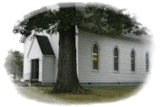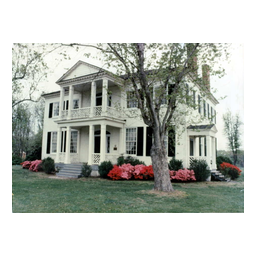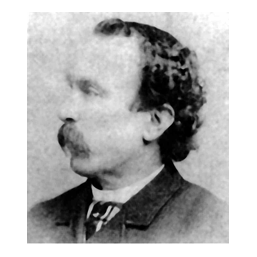Magnolia Grange
Historic Magnolia Grange...
c. 1822 Magnolia Grange House Museum
Today, Magnolia Grange House Museum interprets life at a 19th century Virginia country estate with tours conducted by trained docents. Popular events and programs include lectures, elegant teas, community festivals and a traditional Holiday Day Open House in December. See a virtual tour of the beautiful Magnolia Grange House Museum.
Road Map Hours: Tuesday thru Friday- 10 a.m.-4 p.m. - Sat- 10 a.m.-2 p.m. Tour Pricing: $5.00 for adults; $4.00 for seniors (60+); $3.00 for students (6-18); Children 5 & under are Free For details - please call 804-748-1498 or email Martha Atkinson
For programs and events , go here: Magnolia Grange Events and Programs
Magnolia Grange Notes
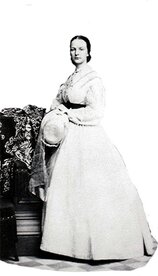
Step Back in Time: Discovering Chesterfield's Historic Sites: Chesterfield County is steeped in history, and exploring its historic sites is like stepping back in time. Visit Magnolia Grange, a beautiful plantation house dating back to the 1820s, or explore the fascinating Henricus Historical Park, a living history museum that recreates the early English settlement. Chesterfield County Museum and Historic Jail provide further insights into the region's past. Immerse yourself in the stories of the past and gain a deeper understanding of Chesterfield's rich historical heritage. Pictured above are two seasonal views of the house museum and Virginia Emma Moody Cogbill (pictured left) and Marcus A. Cogbill.
The House Museum is not ADA accessible to the upper floor and only has a restroom on the second floor. However, ADA Standards do not apply to the house museum. While this may be a temporary setback, you can still access the home with a ramp from the rear of the house for a tour of the first floor which is is elegantly restored with period pieces. All visitors are welcome into our beautiful 19th century home.
Historic Magnolia Grange Notes.
Winfree Family (1822-1845)
The connection between Magnolia Grange and the Winfree family began in 1749 with the formation of Chesterfield County and the construction of its first courthouse. Nearby, the land, known as Cold Water Run, was patented by Valentine Winfree during the 1750s. Upon his death in 1795, Valentine’s estate of over 1,000 acres was inherited by his son Henry Winfree who owned a small mill on Swift Creek. He apparently inhabited a rather large single story frame house on the property.
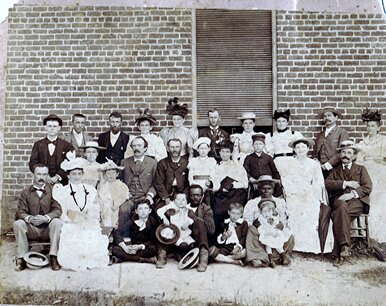 When Henry died in 1803, he left his 1,400 acre plantation equally to his sons William and In 1822, William Winfree, his wife Lucy Bass Winfree and four children named William, Henry, Martha and Mary moved into their newly constructed Federal Period home which would eventually acquire the name Magnolia Grange around the time of the Civil War. A fifth child, Rosalie, was born in 1830. The cost of building the house was $6,000, and it appears that Lucy’s inheritance may have been the source of funds for its construction. (Pictured on the left is Winfree Family Reunion, 1890)
When Henry died in 1803, he left his 1,400 acre plantation equally to his sons William and In 1822, William Winfree, his wife Lucy Bass Winfree and four children named William, Henry, Martha and Mary moved into their newly constructed Federal Period home which would eventually acquire the name Magnolia Grange around the time of the Civil War. A fifth child, Rosalie, was born in 1830. The cost of building the house was $6,000, and it appears that Lucy’s inheritance may have been the source of funds for its construction. (Pictured on the left is Winfree Family Reunion, 1890)William Winfree is known to have operated three businesses on the property. He raised various crops on the 635 acre plantation, including tobacco and cotton. There was also a grist mill for grinding wheat and corn. In addition, he operated a tavern on the property which was conveniently located across the road from the county courthouse. For those who needed to attend to court business, his tavern provided meals, accommodation and stables. An office on the first floor of the mansion, with its own entrance, provided a separate space that allowed William Winfree to attend to the daily operations of the farm, and to meet with buyers of his tobacco crop or with farmers wishing to have their corn or wheat ground in his grist mill. This gentleman was recognized by his contemporaries as an astute businessman. (Researched by Liess van der Linen Brusse)
